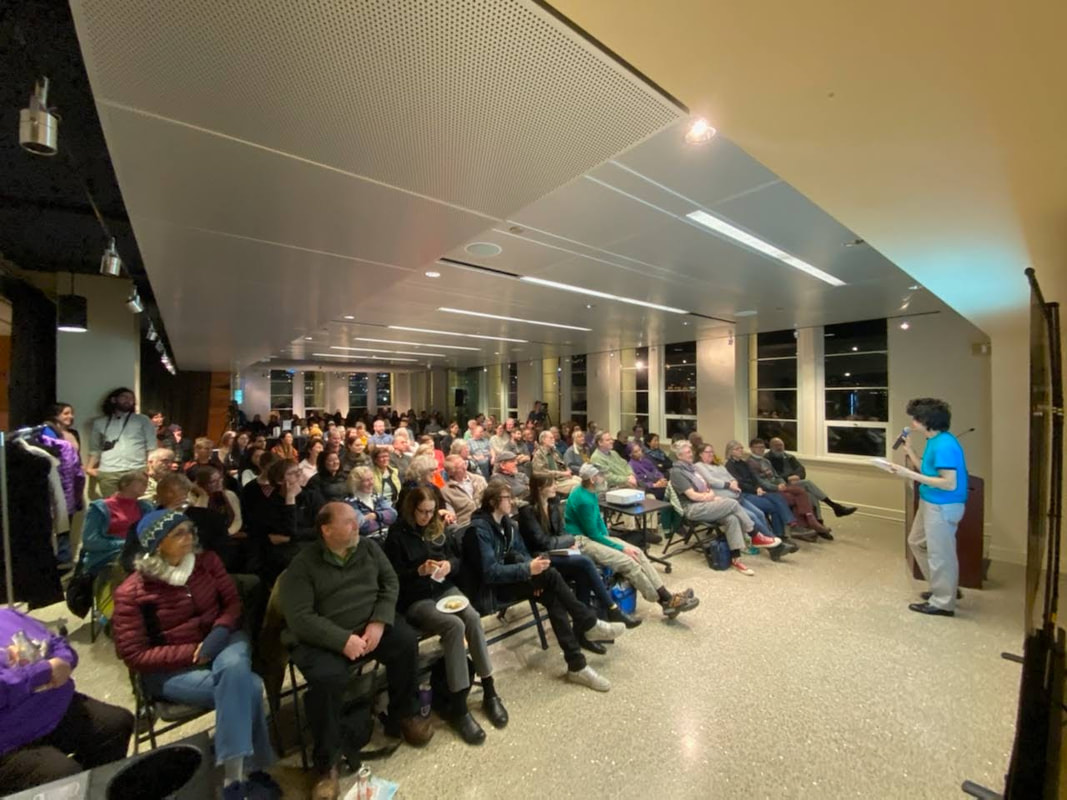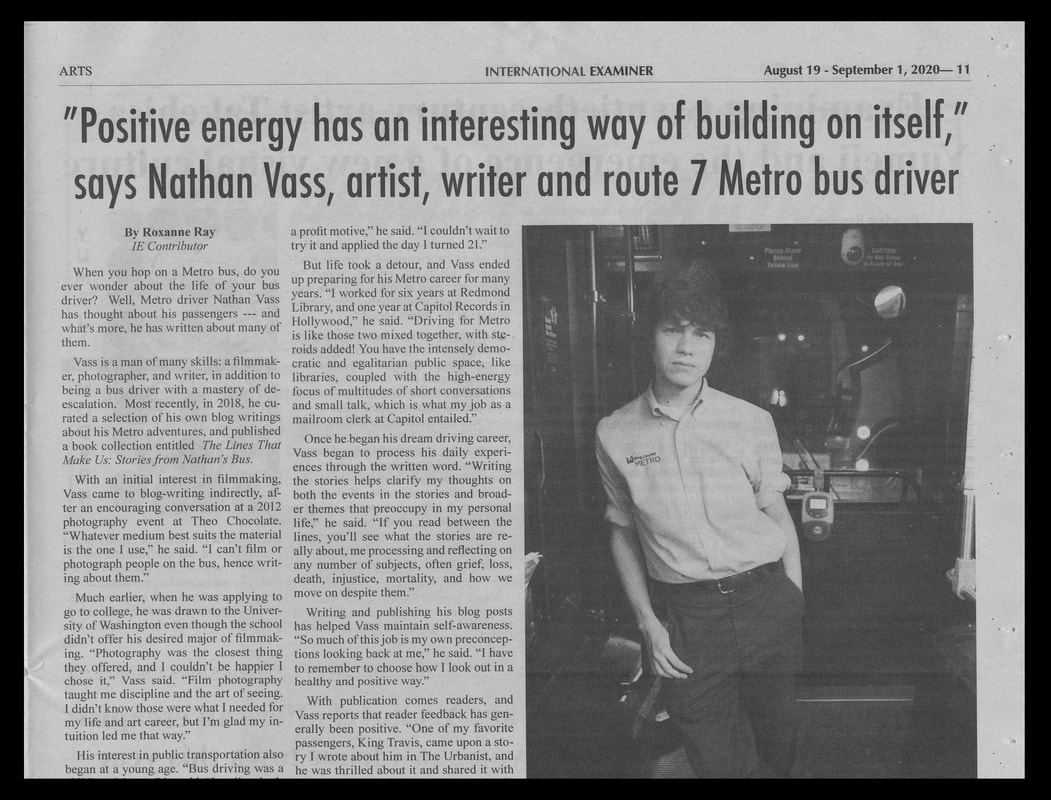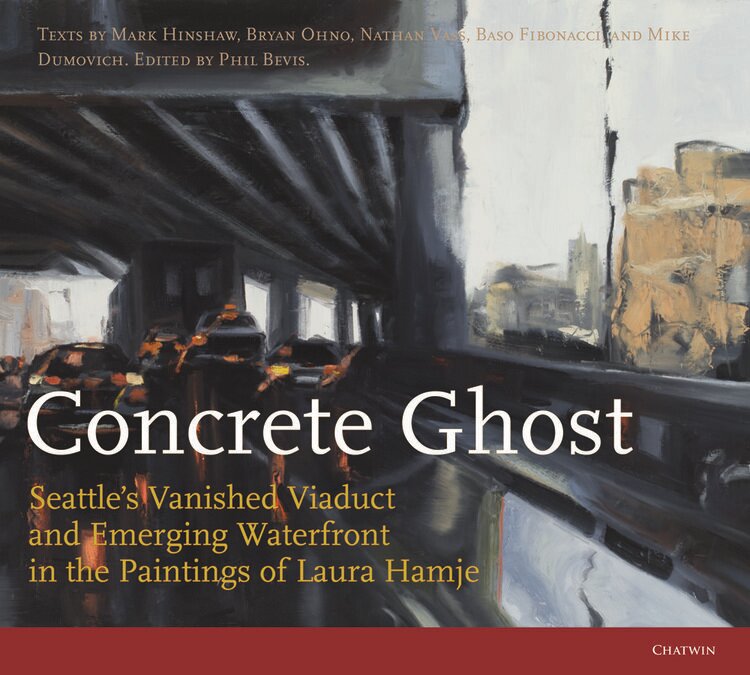|
These events require no commute... because they're all online! How delightful. Grab a pair of jammies and another coffee and log in to Zoom for any of these 4 fun gatherings put on by the City of Redmond, Microsoft, and the Redmond Library as the culmination of their "One Book, One Summer, One Redmond" summer reading program. They've thrown together a roster of events I couldn't be more excited to be headlining, with a flavor for every angle on my book and its themes. Here's a breakdown:
These are, of course, all free. You don't even have to get off your sofa. Take your pick, or come to them all! If you've never had a chance to make it to any of my talks, they'll never be an easier time; check in for an hour, or maybe just a minute! Hope to see your smiling faces!! 1. When We Become Islands– How Advancements in Communication Have Made Us Lonely People NOTE: This is the same speech I gave in February at MOHAI (image from that event above). It was a smash over there, and I can't wait to give it again. If you missed it, now's your chance! Saturday, September 26, 2020 2:00PM – 4:00PM Register and more here. 2. Meet the Author– Nathan Vass Q&A, Discussion, Story readings. I try to have each of my book talks focus on something different, to keep things interesting if you've been to one of these before; I promise to do the same here! Thursday, October 15, 2020 7:00PM – 8:30PM Register and more here! 3. Discussing the Lines That Make Us: Stories From Nathan's Bus: Session 1 Diving deeper with facilitator (and author!) Dori Gilliam. We'll tackle some of the probing questions the book brings up about reaching out, and what that means today. Saturday, October 17, 2020 2:00PM – 4:00PM Register and more here. 4. Discussing the Lines That Make Us: Stories From Nathan's Bus: Session 2 Further deep diving with Dori and I. There's always more to discuss when it comes to community and stewardship in urban spaces. Thursday, October 22, 2020 7:00PM – 8:30PM Register and more here.
0 Comments
As an Asian-American, I'm particularly excited to be inducted into the annals of this excellent publication. Sharing pages alongside 김 진아, Fumiko Kimura and the Maruki Hiroshima Panels is a big deal to me. My being a person of color plays a sizable role in my interactions on the road, but rarely warrants a mention in the more affluent circles of art, publishing and filmmaking through which I move in my off hours. One day I'll have the perspective to write intelligently about it, as Seattle jazz giant Chris Icasiano (and childhood friend of mine) does here, or as fellow Korean-American singer Michelle Zauner does in her hauntingly insightful New Yorker essay, "Crying in H-Mart." For now I'll simply acknowledge my gratitude at being included in the publication, and offer a note to my fellow Hapas:
Multiracialism is usually discussed in negative contexts. Having an invisible culture, being rejected by both your cultures, being mistaken or slighted or ignored and so on. Without taking away from the validity of those points, I'd like to add how much it has benefited my experience in a positive way. In belonging to no single culture and being actively rejected as a member of Korean culture, I've lived for so long with the sensation that I belong instead to all cultures. To a universal human culture. I feel belonging to no single tribe, but to the collective all of them. I imagine this plays a larger role than I'll ever know in my interactions with the folks. People consistently think I'm "half-whatever they are," in the sense that Dwayne Johnson's universal appeal mostly to do with his welcoming attitude on top of the fact that nobody can tell what his heritage is... Yes, you may feel invisible and I don't blame you, especially in the shadows of this city's history of internment; especially in the exclusionary derision in which various Korean staff laugh me out of the building when I speak my own family's language– with a perfect accent, no less– with them. You've felt such things too, I'm sure, and probably privately. These are not moments which get discussed, and they can fester, not least because the first rule of Asian-American identity isn't that you don't talk about it, but that no one else does, which usually– and ultimately– means you don't either. But let's remember what is also true. You have something tangibly in common with a much larger swath of humanity. This cab driver, that software developer, this dishwasher, that nurse, that ophthalmologist, gas station attendant, operator... You share the Asian immigrant tendency toward hard work, toward unglamorous working-class surfaces and humble rooms and faded family photos from far away, unused languages, formative traditions no one around you knows about... These are the echoing textures of your family's experience and an enormous host of people of all colors, white included. We all have more in common than we don't. I'm not qualified to be an expert on these subjects, but I can certainly speak for myself: perspectives that involve divisions and otherizing tend to hurt, and outlooks that involve coming together always help. When was tribalism ever a healthy solution? Let's think of where we overlap. I wouldn't be where I am without the sneaking sensation of comfort that comes from this very loneliness, which only you know about. You are an island with no harbor, sure. But you also have something in common with every harbor. Every island. You've got nothing... and everything, in a way no one else can lay claim to. You are not invisible, and as time passes you will only continue to be less so. A big thank you to Roxanne, Jill, Alan, Tom and all the others who put this together. Pick up a copy, or click the link below! INTERVIEW (text): "Positive energy has an interesting way of building on itself,” says Nathan Vass, artist, writer and route 7 Metro bus driver Maybe you were there, this past February (before the world ended and began again). We were at MOHAI, in a room which won't be that packed full for a long time again. I was giving a talk with a surprise perspective on my bus life– how younger generations choose (not) to communicate, and how that affects them.
So why did I suddenly interject the proceedings with the eulogy of the Alaskan Way Viaduct? A friend would tell me afterward, "I liked everything. I even liked the graphs. I loved the graphs. But I don't see how the Viaduct thing fit in at all!" I was reminded of a reading I once did at the Phinney Neighborhood Center, for their annual Bookfest event. I went with a plan: this was the story I was going to read. The Death story. The thematic climax of my book, the heaviest story and for me and the most resonant. But I had misread the room. This was a holiday bookselling festival. You were supposed to have a good time, joking with Garth Stein and trying out the book-cover cookies. Watch me biff the situation here. Can I help it if Loss moves me more than laughter? If my way of finding the light involves staring death down, wrestling with the heaviest of thoughts to get through them, rather than looking the other way? I felt foolish afterwards at Phinney; I should've chosen a funny story. I've certainly written plenty, and love surfing the wave of joy with a crowd. But that's not what drives me. As a generation– and I'm referring to all of us alive today– we are unique in being forced to contend with a level of change most epochs don't have to experience. The lion's share of human history doesn't involve moments where you can't recognize the world you lived in ten years ago, let alone thirty, let alone that of your parents. For ninety percent of human history, you couldn't tell the difference between your time and a century earlier or later. The human organism is accustomed to being outlasted by objects, ideas, and surroundings. The multitude of rug-pulling change underway these decades is not natural to our souls, and the older spirits among us don't need further explanation to agree. The elimination of the Viaduct represents for me a symbol of all that, and more: it was the last mega-sized vestige of the city we called Seattle. That was the word we used for a century and change, and though we may live at the same addresses now, today's New Money feels nearly as dismissive and different from its predecessors as Seattle was from the natives it so unfairly wrested land from. Or, as a passenger recently told me: "I done seen Seattle. And this shooooowww' ain't it!" The book I mentioned in my MOHAI lecture, a collection of paintings by my fellow friend and artist Laura Hamje, has finally come to fruition. I'm featured within it as part of a collection of writings about the Viaduct and what its absence means. But even if I wasn't in its pages I'd still be stumping for her book, because it's really about the paintings; don't go to her September 5th reception event because of me, but for the remarkable quality of her work. Do I need to mention every single painting she did for her 2019 show, 53 Views of the Alaskan Way Viaduct, upon which this book is based, sold? Every last one? Or that, more importantly, they contain a beauty of perspective we can all learn from: a melancholic acceptance and peace with the forward flow of existence, as spoken by her elegiac compositions and somehow strangely appropriate energy, richness, color and verve of her brushwork... with art comes the calmness of new insight. Death is the motivating engine not of death, but of Life. It allows creation. It is all growth, it is all forward, upward, nearer to understanding. In the Viaduct is a fuller comprehension of who we are, who we'll always and ever be: Works in progress. You've been wanting to get out of the house. Perhaps now's the time. --- Book signing event for Laura's book on September 5, 2020 from 1pm - 4pm outside Arundel Books: 212 1st Ave S, Seattle, WA 98104. Prints of the paintings will also be available. Linda Hodges Gallery will be showing the new paintings from the book in their upstairs space, Sept 3 - 26, 2020, just one block south of Arundel Books: 316 1st Ave S Seattle WA 98104 (Gallery Hours: Tuesday - Saturday, 10:30 am to 5:00 pm). More on the book itself here. Further details on the event here. --- Watch my February MOHAI lecture here. |
Nathan
Archives
July 2024
Categories |



 RSS Feed
RSS Feed
